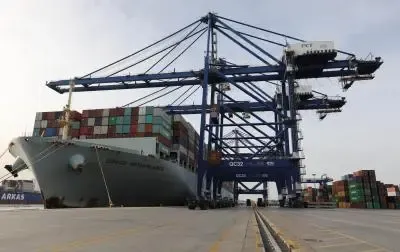What Does the Passage of the Carriage of Goods by Sea Bill Mean?

Synopsis
Key Takeaways
- Modernization: The Bill updates century-old shipping laws.
- Clarity: It simplifies legal language for better understanding.
- International Standards: Aligns Indian laws with global maritime conventions.
- Transparency: Enhances oversight of executive notifications.
- Adaptability: Empowers the government to swiftly adjust to new international regulations.
New Delhi, Aug 6 (NationPress) The Parliament has successfully passed the Carriage of Goods by Sea Bill, 2025, following a voice vote in the Rajya Sabha, despite disruptions caused by opposition MPs related to the Special Intensive Revision matter.
This Bill has already received approval from the Lok Sabha. With the Bills of Lading Bill, 2025 also cleared by both Houses, it is now set to be forwarded to the President for her approval, paving the way for its enactment as law.
Shantanu Thakur, the Minister of State for Ports, Shipping and Waterways, introduced this Bill to replace the century-old Carriage of Goods by Sea Act, 1925.
The Act defines the responsibilities, liabilities, rights, and immunities concerning goods transported from one port in India to another or to any global destination. It adheres to the International Convention for the Unification of Certain Rules of Law concerning Bills of Lading from August 1924 (Hague Rules) and its subsequent amendments.
This legislative update simplifies the legal language, making it more accessible for stakeholders, particularly Indian exporters, importers, and shipping professionals.
While maintaining the essential legal framework, the Bill aligns with modern drafting standards, thereby reducing ambiguities and minimizing the potential for litigation.
It empowers the government to quickly adapt to changing international maritime conventions.
Additionally, the Bill enhances transparency and accountability through parliamentary oversight of executive notifications.
On July 21, Parliament had also approved the Bills of Lading Bill, 2025, which the Lok Sabha passed in March, aimed at replacing the 169-year-old colonial shipping law with a more streamlined and updated legal framework for shipping documentation.
This new legislation will supersede the Indian Bill of Lading Act 1856, providing a contemporary and user-friendly approach to maritime shipping.
The existing British-era law, which consists of only three sections, mainly governs the transfer of rights and the confirmation of goods being loaded onto vessels. Given the evolving shipping industry and changing global trade dynamics, India needs to adopt a more comprehensive and understandable legal framework that aligns with international standards.









